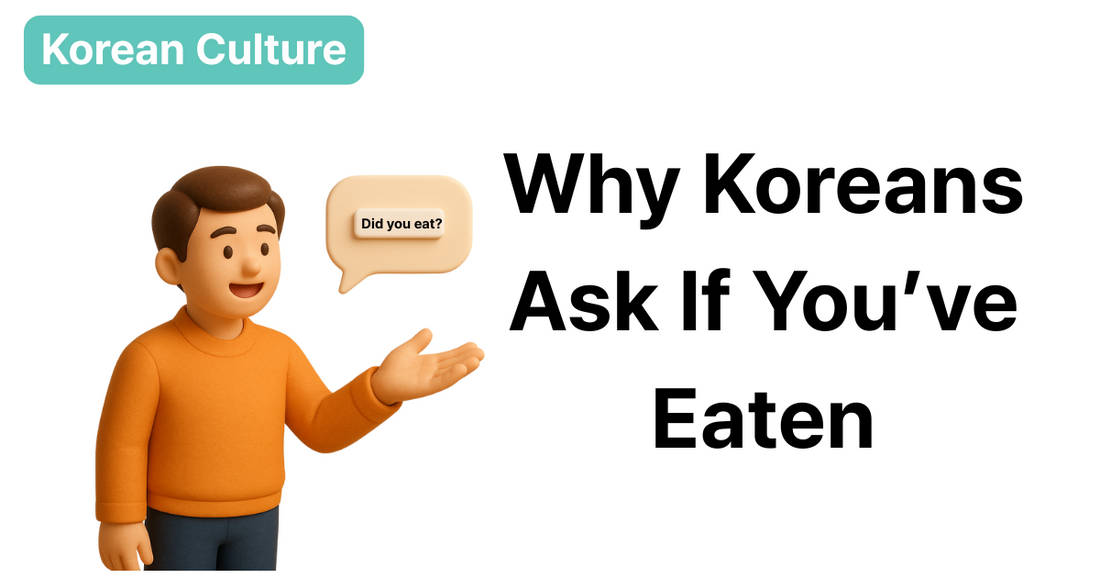
🍚 “밥 먹었어요?” — Why Koreans Ask If You’ve Eaten (Even When They’re Not Offering Food!)
Share
You meet a Korean friend, and instead of saying “Hi” or “How are you?”
they smile and say:
“밥 먹었어요?” (bap meo-geo-sseo-yo?)
= “Did you eat?”
At first, this might seem random—like they’re inviting you to lunch.
But in Korean, this simple phrase carries a much deeper message.
Let’s unpack it.
🫶 A Greeting Full of Care
In English-speaking cultures, you might hear:
“How are you?” or “How’s your day?”
But in Korea, asking “밥 먹었어요?” is a way to say:
💛 “Are you doing okay?”
💛 “Have you taken care of yourself today?”
💛 “You matter to me.”
Especially among family, close friends, and elders, this is more than small talk.
It’s a warm check-in—a small phrase with big heart.
🗣 Let’s Break It Down
- 밥 (bap) = rice, or simply “a meal”
- 먹었어요 (meo-geo-sseo-yo) = did you eat
Put together:
“밥 먹었어요?” = “Did you eat?”
Pronunciation: [bap maw-gaw-ssuh-yo]
📌 You can use this phrase around lunchtime or dinner—whether you're offering food or just showing care.
💬 Related Warm Korean Expressions
Here are a few other everyday phrases Koreans use to show they care—without saying “I love you” directly.
🧣 감기 조심하세요!
(gam-gi jo-sim-ha-se-yo)
= “Be careful not to catch a cold.”
💡 Common in fall and winter—especially from parents or teachers.
🍵 따뜻한 거 마셔요
(tta-tteut-han geo ma-syeo-yo)
= “Drink something warm.”
💡 Like saying “Take care” on a cold day.
🏠 조심히 들어가세요
(jo-sim-hi deu-reo-ga-se-yo)
= “Get home safely.”
💡 A warm and respectful way to say goodbye after meeting someone.
💡 Culture Tip: It’s All About Relationships
Korean is a relationship-based language.
The words you choose show how much you care.
So next time you hear:
“밥 먹었어요?”
Try answering with a smile and:
“네, 먹었어요. 고마워요!”
= “Yes, I did. Thank you!”
It’s a small exchange, but it builds connection—the heart of Korean communication.
💬 Let’s Connect
What’s a warm greeting in your language or culture?
Do you have similar phrases that go beyond words?
Leave a comment and let us know what you'd like to learn next!
We’re always adding more bite-sized, heartfelt Korean tips.
Easy Korean Chat — Learn Korean, one warm word at a time. 💗
